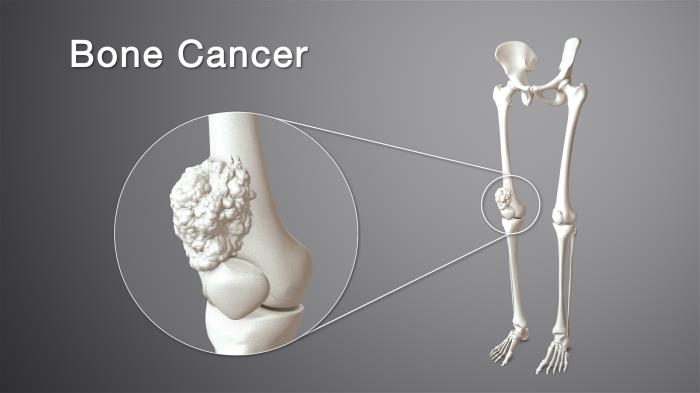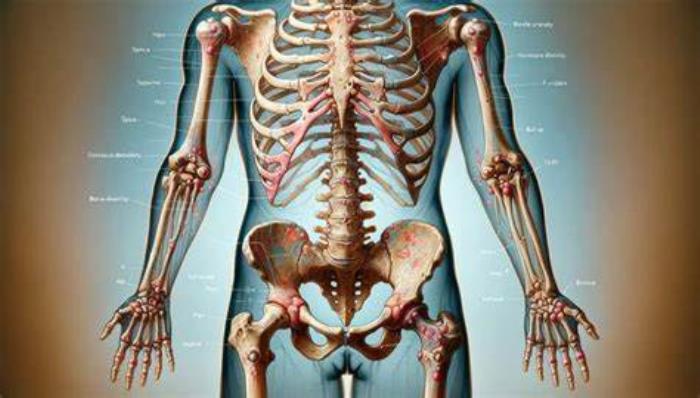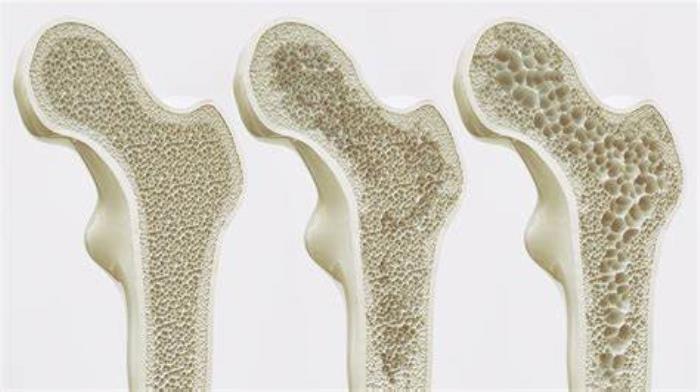Cancer treatments such as chemotherapy, radiation therapy, and hormonal therapy can significantly affect bone health. These treatments may lead to decreased bone density, increasing the risk of osteoporosis and fractures. It is crucial for patients to be aware of these risks and to take proactive measures to maintain their bone health during and after treatment.
Medical disclaimer: This content is for general awareness and does not replace a doctor’s consultation. For diagnosis or treatment decisions, consult a qualified specialist.
The Role of Bone Density in Overall Health Post-Cancer
Bone density is a vital aspect of overall health, especially for cancer survivors. Low bone density can lead to fragility fractures, which can severely impact a patient's quality of life. Maintaining healthy bones post-cancer treatment is essential for mobility and independence, making it a priority for long-term health management.
Factors Influencing Bone Health After Cancer Treatment
Several factors can influence bone health in cancer survivors, including age, gender, and the type of cancer treatment received. For instance, women are at a higher risk of developing osteoporosis post-menopause, and certain medications can accelerate bone loss, necessitating tailored strategies for bone health maintenance.

The Importance of Nutritional Support for Bone Health
A well-balanced diet rich in calcium and vitamin D is crucial for maintaining bone health after cancer treatment. Foods such as dairy products, leafy greens, and fortified cereals can help support bone density. Additionally, supplements may be necessary for individuals who struggle to meet their nutritional needs through diet alone.
Exercise as a Key Component for Strong Bones
Engaging in regular weight-bearing exercises is essential for promoting bone health post-cancer treatment. Activities such as walking, jogging, and resistance training can help strengthen bones and improve balance, reducing the risk of falls and fractures. It is advisable to consult with a healthcare provider before starting a new exercise regimen.
Monitoring Bone Health: Importance of Regular Check-Ups
Regular check-ups are vital for monitoring bone health in cancer survivors. Healthcare providers may recommend bone density tests to assess bone strength and detect any early signs of osteoporosis. Early intervention can significantly improve outcomes and help manage bone health effectively.
Understanding Osteoporosis and Its Connection to Cancer Treatment
Osteoporosis is a condition characterized by weakened bones and increased fracture risk. Cancer treatments can contribute to the development of osteoporosis, making it essential for survivors to understand their risk factors and take preventive measures. Awareness and education about osteoporosis can empower patients to advocate for their bone health.
Pharmacological Interventions for Bone Health
In some cases, pharmacological interventions may be necessary to support bone health post-cancer treatment. Medications such as bisphosphonates or denosumab can help increase bone density and reduce fracture risk. A healthcare provider can assess the need for these treatments based on individual risk factors and medical history.
Strategies for Fall Prevention in Cancer Survivors
Fall prevention is crucial for cancer survivors, particularly those experiencing bone density loss. Strategies include improving home safety, using assistive devices, and participating in balance training exercises. Proactive measures can significantly reduce the risk of falls and related injuries.

The Psychological Impact of Bone Health Concerns
Concerns about bone health can lead to anxiety and stress for cancer survivors. Understanding the importance of bone health and implementing preventive strategies can alleviate some of these worries. Support groups and counseling may also be beneficial in addressing psychological impacts related to health concerns.
Patient Education: Empowering Survivors for Better Bone Health
Educating cancer survivors about the importance of bone health is essential for empowering them to take charge of their well-being. Resources such as workshops, informational brochures, and online platforms can provide valuable information about maintaining bone health and available support options.
The Role of Healthcare Providers in Bone Health Management
Healthcare providers play a critical role in managing bone health post-cancer treatment. They can offer personalized recommendations, monitor bone density, and prescribe appropriate interventions. Collaboration between patients and providers is essential for developing effective bone health strategies tailored to individual needs.
Long-Term Follow-Up Care for Cancer Survivors
Long-term follow-up care is essential for monitoring the ongoing health of cancer survivors, including their bone health. Regular assessments and screenings can help detect any emerging issues early, allowing for timely interventions to prevent complications such as fractures.
Understanding the Link Between Hormonal Changes and Bone Health
Hormonal changes resulting from cancer treatments, particularly in breast and prostate cancer, can significantly affect bone health. These changes may lead to accelerated bone loss, necessitating a focused approach to managing bone health through lifestyle modifications and medical interventions.
Community Resources for Supporting Bone Health Post-Cancer
Many community resources are available to support cancer survivors in maintaining bone health. Local health organizations, fitness centers, and support groups can provide valuable resources, including exercise programs, nutritional counseling, and educational workshops tailored to the needs of survivors.
Importance of Hydration for Bone Health Recovery
Staying hydrated is essential for overall health and can indirectly support bone health recovery post-cancer treatment. Adequate hydration helps maintain cellular function and nutrient transport, which are vital for bone repair and regeneration. Cancer survivors should prioritize fluid intake as part of their recovery strategy.

The Role of Biopsies in Confirming Bone Cancer Diagnosis
Accurate diagnosis is a cornerstone of effective treatment for bone cancer. The role of biopsies in confirming bone cancer diagnosis is crucial as they provide detailed insights into the type and stage of cancer. This article explains how biopsies help oncologists design precise treatment plans for improved patient outcomes.
Differences Between Primary and Secondary Bone Cancer
Bone cancer can manifest in different forms, and understanding these distinctions is essential. Differences between primary and secondary bone cancer highlight how cancer originating in the bones (primary) differs from cancer that spreads to the bones from other organs (secondary). This article sheds light on their unique characteristics and treatment approaches.
Integrating Complementary Therapies for Enhanced Bone Health
Complementary therapies, such as yoga and tai chi, can be beneficial for enhancing bone health and improving overall well-being in cancer survivors. These practices promote flexibility, balance, and strength, contributing to better bone health and reducing the risk of falls.
Best Bone Cancer Treatment in India
The Best Bone Cancer Treatment in India includes innovative approaches such as limb-sparing surgery, chemotherapy, and targeted therapies to effectively combat bone cancer.
Best Bone Cancer Hospitals in India
The best bone cancer treatment hospitals in india are equipped with advanced diagnostic tools and multidisciplinary oncology teams, ensuring comprehensive care and excellent outcomes for patients.
Bone Cancer Treatment Cost in India
The bone cancer treatment cost in india is affordable, offering world-class treatment options that cater to both local and international patients.
Best Bone Cancer Specialists in India
The Best Bone Cancer Specialists in India are highly experienced in diagnosing and managing bone cancer, providing personalized care plans to meet each patient’s needs.
FAQs: Common Questions About Bone Health Post-Cancer Treatment
What are the main risks to bone health after cancer treatment?
The main risks include osteoporosis, increased fracture risk, and hormonal changes that can accelerate bone loss. Understanding these risks can help in implementing preventive strategies.
How often should I get my bone density checked after cancer treatment?
It is generally recommended to have a bone density test every 1-2 years, but this may vary based on individual risk factors. Consult your healthcare provider for personalized recommendations.
What dietary changes can I make to improve my bone health?
Incorporate foods rich in calcium and vitamin D, such as dairy products, leafy greens, and fatty fish. Consider discussing supplements with your healthcare provider if dietary intake is insufficient.
Are there specific exercises that are best for bone health?
Weight-bearing exercises, such as walking, dancing, and resistance training, are particularly beneficial for strengthening bones. Balance exercises like tai chi can also help reduce fall risk.
What should I do if I experience bone pain after cancer treatment?
If you experience bone pain, it is essential to consult your healthcare provider for evaluation and management. They can determine if further investigation or treatment is necessary.
Discover the Best Oncologists and Cancer Hospitals in India
When it comes to cancer treatment, finding the right specialist and hospital can make a significant difference in the outcome. In this blog, we have compiled a list of the top oncologists and cancer hospitals across major cities in India, ensuring that you have access to the best care available.
Top Oncologists in Major Cities
For those seeking expert oncologists, we have identified the best specialists in key cities:
Leading Cancer Hospitals
In addition to finding the right specialist, choosing the right hospital is crucial for comprehensive cancer care. Here are the top hospitals in major cities:
Get more indepth information on Cancer treatments and their costs
Conclusion
Finding the right oncologist and hospital is the first step in your cancer treatment journey. Explore the links above to learn more about the top specialists and hospitals in your area.
Explore the latest advances in bone cancer treatment options available in India. Learn about cutting-edge therapies, innovative surgical techniques, and the top hospitals leading the way in providing comprehensive care for bone cancer patients. Discover how India is becoming a hub for advanced bone cancer treatments, offering hope and improved outcomes for patients. Advances in Bone Cancer Treatment Options in India
This article delves into the key distinctions between primary and secondary bone cancer, highlighting their origins, symptoms, diagnostic methods, and treatment options. Learn about the different causes, progression, and management strategies for these two types of bone cancer. Differences Between Primary and Secondary Bone Cancer
This article explains the crucial role of biopsies in diagnosing bone cancer, detailing the different types of biopsy procedures, their accuracy, and how they help determine the presence and type of cancer cells in bone tissue. The Role of Biopsies in Confirming Bone Cancer Diagnosis